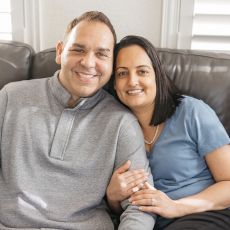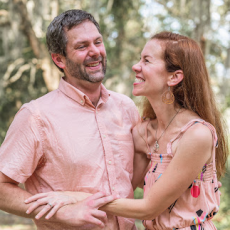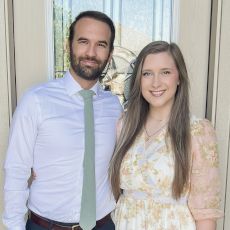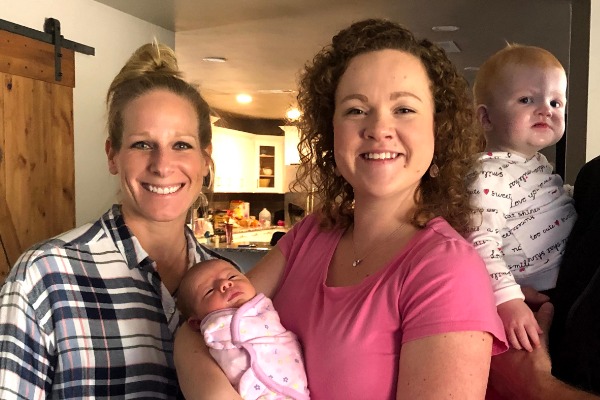Emotions of "Giving Your Child Up" for Adoption [What to Expect]
How it Feels to Place a Child for Adoption
Whatever you feel when choosing adoption is valid because even though you know it’s what’s best for you and your baby, it’s an emotionally complex process.
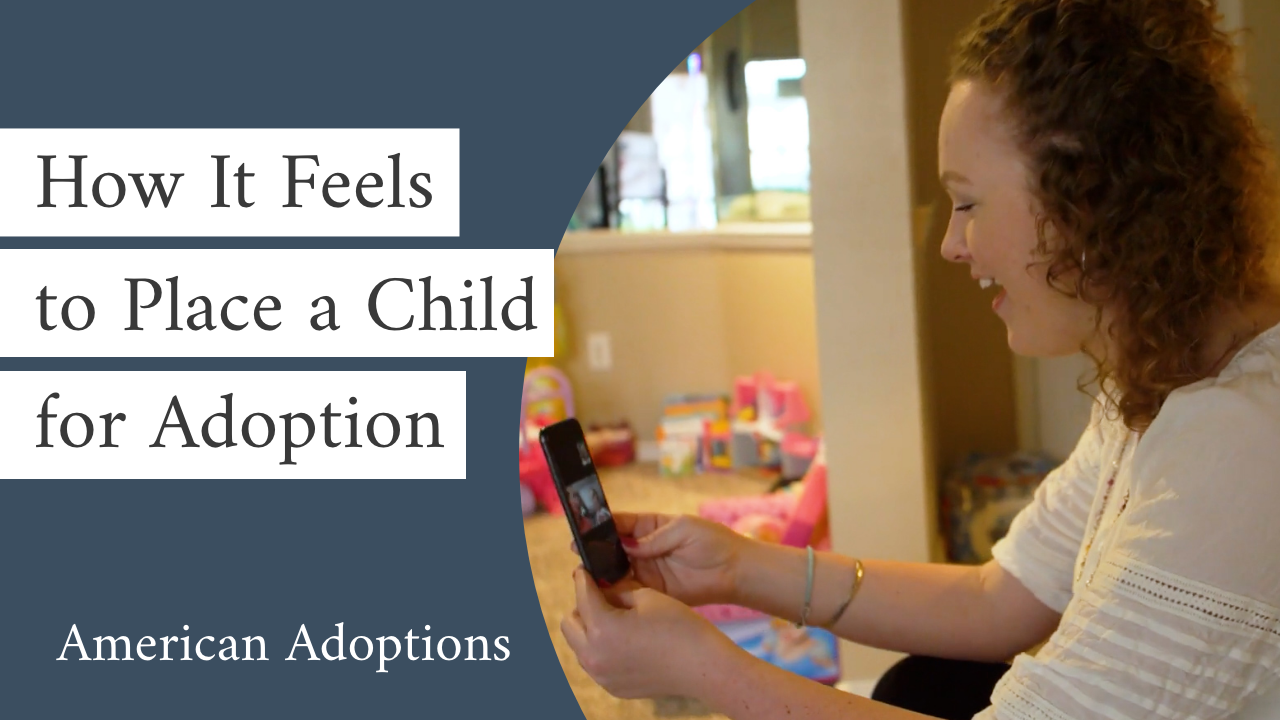
In addition to thinking about what will happen at different stages of your adoption process, you’re likely wondering how you will feel at those different stages. In fact, some of the most common questions our adoption specialists hear are, “How does it feel giving a child up for adoption?” “If a mother puts her baby up for adoption, how is she going to feel after placement?”
There’s no simple answer to these questions, as every person’s feelings are different. But adoption is rarely an easy decision to make, and there can be a significant emotional impact when “giving up” a baby for adoption.
Placing your child for adoption comes with many valid and complex emotions. To get the support you need and to learn more about the adoption process, reach out to us today.
How it Feels to “Give a Baby Up” for Adoption
While there’s no “right” or “wrong” way for parents to feel when they “give up” a child, there are some common emotions reported by birth mothers who have been through the adoption process. One of the most common of these is the grief of giving a child up for adoption. Here’s what you need to know about this common — and complex — emotion of “giving up” for adoption.
Women who are considering adoption have asked us, “How do birth mothers feel after adopting a baby out?”
You may have heard of people experiencing the seven stages of grief after the death of a loved one or a failed relationship, but did you know women who face an unplanned pregnancy and choose adoption experience a similar grief and loss process? This process of grieving and healing is how you’ll begin to feel at peace after placing a baby for adoption.
Birth mother Natasha knows how it feels to place a baby for adoption. While she describes feelings of grief and loss, she also knows that those feelings are necessary to reach a place of acceptance.
“A mother's love for her child is like no other love. To be able to put that feeling aside because you want the best for your child is the most unselfish thing I know. No one will ever understand that pain until they are in your shoes. You are not alone!” said Natasha. “As the days go on, the pain slowly fades little by little. It will not always hurt as much as it did the month, week, or day before.”
If you are thinking about placing your baby for adoption but feel a sense of fear, guilt or anger, understand that these are normal emotions of "giving your child up" for adoption and do not mean that you are headed down the wrong path.
Reaching the “acceptance” stage is the goal of every person moving through the grief and loss process. You will begin to find acceptance as you continue to get to know the adoptive family and receive picture updates of your baby being safe, happy and in a good home. You know you’ve reached the acceptance stage when you find peace with your adoption decision, and the rest of these emotions begin to fade away.
However, you may still experience some sadness or even anger after finding acceptance, which is normal and just part of being a mother who loves her child.
You never have to go through this difficult time alone. Our adoption specialists will be a shoulder to lean on. Many of our adoption counselors have gone through the adoption process as birth parents themselves, so they understand the difficult emotions you might be experiencing.
The following are the seven stages of grief and loss and what they might look like if you pursue an adoption plan for your baby. Remember, these stages can be experienced in any order, some more than others and some not at all. Everyone will experience their own emotions when “giving up” a baby for adoption in their own time, so don’t be surprised if your individual grieving process comes in starts and stops.
However, you’ll likely experience at least some of these seven stages on your way to finding peace with your choice:
Helpful Information
1. Denial
Some women feel a sense of denial when finding out they are pregnant, especially when the pregnancy comes as a complete surprise. While denial is often cited as one of the first stages of grief, it’s common to think, “I can’t believe this is happening to me,” at any point during an unplanned pregnancy and the adoption process. It’s important to acknowledge this common feeling of “giving up” your child for adoption so you can move forward in a healthy way through the grief process.
Birth mother Amanda described experiencing denial early on in her pregnancy.
“I hid my pregnancy from everyone and really didn’t seek any prenatal care because I didn’t want to believe that I was really pregnant,” she said.
But, once Amanda worked through this stage of her adoption grief process and accepted the reality of her unplanned pregnancy, she was able to start making a plan for herself and her baby.
“I can’t say enough how happy I am about how things worked out in the end,” she said. “I loved Lauren enough to want so much more for her than I would be able to give her, which is why I chose to place her for adoption.”
You can read more of Amanda’s story here.
2. Anger
It is common for women to feel anger and resentment when learning of an unplanned pregnancy. This anger can be directed toward the father of the baby, who may be unsupportive of your adoption decision or unsupportive of you altogether. It could also be directed toward other people in your life or even your adoption specialist.
Being angry about your situation is natural; just make sure you express your anger in healthy ways.
"Through the pregnancy, I became set with my decision, although emotionally, I felt so disappointed and angry that I had to give up something so precious,” said Kimberly about the conflicting emotions she was faced with. “Dealing with the negative emotions was only lightened by the fact that I was doing what was best for my unborn child, this decision would provide the stability and opportunities that I couldn't provide."
3. Shock
Shock is the feeling many women get when they first find out they are pregnant and are unsure of what to do next. Finding yourself in such a situation and facing a life-altering decision can make you feel frozen in your decision-making process.
"I was in shock. I have never cried so hard and felt so ashamed, embarrassed, and destroyed inside as I did the morning of September 25, 1997. I was quickly in denial telling the doctor that they had made a mistake, it couldn’t be. But in reality it was true,” said Michelle, a birth parent who works with American Adoptions.
Even after 20 years, she is still at peace with her decision and helps other birth moms through these emotions.
"I am available to answer any questions that arise, particularly from birth moms, as I have been in your shoes and know how you are feeling,” said Michelle. “It was most helpful to me when I had someone to talk to who would just listen to me without making any judgements or conclusions about who I was as a person."
4. Depression
Everyone experiences situational depression, but the thought of someone else raising your baby can create a much greater sense of depression.
Many women who choose adoption begin to feel their depression subside once they begin looking at potential adoptive families. After selecting a family and getting to know them, a woman’s depression can sometimes turn into excitement when thinking about her child’s future life.
It’s important to talk to your adoption specialist, a trusted friend or family member, or mental health professional about any feelings of depression about placing your baby for adoption, especially if those feelings are interfering with your ability to function.
If you have any thoughts of death or suicide or if you need immediate help, call 911 or the suicide hotline at 1-800-273-8255 immediately.
5. Fear
For many women, an unplanned pregnancy is downright frightening.
The prospect of parenting at this stage of life can bring about deep feelings of insecurity and fear, while the thought of your child living in someone else’s home can bring about a different sense of fear. This feeling will begin to go away when you learn about the adoption process and become comfortable with the adoptive family.
Birth mother Heather described the fear she felt when she learned of her unplanned pregnancy — and the comfort she started to feel when she found American Adoptions and began searching for the perfect adoptive parents.
“I was alone, scared and very worried about what the future held for my unborn baby, my children and me,” she said. “I contacted American Adoptions and they were kind, caring and showed me a great deal of understanding. I looked through the profiles that they sent me of waiting adoptive families, and I knew when I saw Gary and Amy’s profile that they were going to be the parents of my baby.”
Stories like Heather’s are common. This is why birth parents are so incredibly brave — they choose the best thing for their baby, even when they are afraid. It is a choice that is courageous, selfless and heroic.
6. Guilt
Some expectant mothers feel guilty “giving a baby up” for adoption. The guilt associated with a birth mother “giving a child up” for adoption can come from others around you who are ignorant about today’s adoptions and who may call you “selfish” or “irresponsible” for putting your baby up for adoption.
Even the language that society uses to talk about adoption can create a shameful or guilty feeling of “giving up” your child for adoption or “giving your baby away” — but those feelings of guilt and shame are unfounded. Choosing adoption is not “giving up” on your baby in any sense; it’s a brave and selfless decision made out of love.
This guilt will often subside when you know you made the right decision for your baby, whether that is choosing adoption or parenting.
“You’re not giving your babies up,” birth mother Janelle said. “You’re just giving them a better life… it’s unselfish, you know? That’s their lives you’re thinking about — it’s not just your life. You’re giving them the opportunity to live the best life that they can, and the life you know that you can’t give them.”
You can read more of Janelle’s story here.
7. Acceptance
Acceptance is a gradual process that happens over time.
Contact with the adoptive family, such as receiving pictures and letters or exchanging emails, can be very beneficial in reaching the acceptance stage because it will be a reminder that your child is happy. Knowing and accepting that your child has a great life is often considered the end of the process of grief after giving up a baby for adoption, but adoption is a lifelong journey.
How people feel after “giving a baby up” for adoption can continue to shift and change over time.
“I remember watching them from my third-floor hospital window as they put her in the car and drove away. I remember sobbing all over the poor nurse assigned to me after they’d gone. Even then, in that moment, I knew it was the right choice,” said Brittnee about the emotions she experienced after placing her baby for adoption. “I knew that she would have everything I knew she deserved. She would have amazing opportunities for education, she would have a loving and devoted family and be able to travel and see this amazing world we live in.”
Parting with your child is undoubtedly difficult. Over time, as you accept your adoption for the selfless and loving act that it is, you will experience immeasurable joy and peace knowing that your child has opportunities they might not have had otherwise, and the love of two families. Adoption isn’t easy, but you will get to a place where the hard feelings fade and give way to happiness and acceptance.
"I have done something in my life that truly made me proud of myself. All of the negative and hurt I had was completely replaced by peace. The family that I chose could not have been any better. Not only did they deserve my baby, but my baby deserved them,” said Mendy, a birth mother who chose adoption for her baby. I thought I was going to lose so much when I handed her off to her new family but I gained more than I thought. I gained self-respect for myself and I gained a compassion and love for two strangers that I entrusted to love my little girl and do their very best by her."
***
American Adoptions offers free adoption counseling to women throughout every stage of the adoption process.
Adoption specialists are available at any time online or at 1-800-ADOPTION for you to discuss any of these feelings, talk about how to deal with adoption grief or postpartum grief when placing a baby for adoption, or answer your adoption questions after finding out you are pregnant. You can get the support you need now by calling us or requesting free information here.
Disclaimer
Information available through these links is the sole property of the companies and organizations listed therein. American Adoptions provides this information as a courtesy and is in no way responsible for its content or accuracy.






























